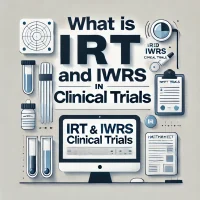For many in today’s economy, finding extra sources of income is now very essential. Taking part in clinical studies is one less-known possibility. Demand for volunteers to test new drugs and medical equipment rises along with the healthcare sector. This rising trend presents a unique means of income generation for which one might support medical research.
This article can help you locate and apply for funded clinical trials by Haltha. We will discuss important elements like how to participate in clinical trials for money, qualifying requirements, pay, and the first starting process phases.
What Are Paid Clinical Trials?
Essential for further medical research and treatment, clinical trials assess novel drugs, therapies, or technology. Many studies pay participants financially; this varies depending on the particular experiment and the time commitment required. Participating lets you augment your income and assist in creating innovative cures.
Steps to Start Participating in Paid Clinical Trials
Follow these basic guidelines to get started if you want to know how to get paid for clinical trials. This book will enable you to optimize your chances of locating appropriate studies and properly negotiate the procedure.
Step 1: Research Available Studies
Start by looking for clinical trials in trustworthy sites. Here are some respectable sites worth looking at:
- Haltha
Haltha offers a large database of highly paid clinical studies along with first-rate assistance to help you in choosing the top prospects. Our platform is designed to provide users with a seamless and efficient experience in finding clinical trials that match their needs and qualifications.
- ClinicalTrials.gov
A thorough collection of globally carried out privately and publicly sponsored clinical trials.
- CenterWatch
Provides a catalog of clinical studies and patient tools, with an eye on those under active recruitment.
- Covance
A worldwide pharmaceutical development firm with a summary of many clinical studies accompanied by their specifics.
- Local Universities or Research Hospitals
Many colleges and hospitals do clinical studies and could offer details on their websites.
- PaidClinicalTrials.org
A devoted tool including several papers with salary data for locating funded clinical trials.
Look for chances to participate in research studies for money when searching. This will help you find credible and profitable trials.
Step 2: Determine Your Eligibility
Every person who decide to participate in paid clinical trials has particular eligibility requirements that could include:
- Age. Some studies call for volunteers to fall within a certain age range.
- Gender. Because of the nature of the therapy under test, some studies might focus on one gender.
- Health status. Many times, trials call for participants to be in a specified health group or have certain medical issues.
- Medical history. Your eligibility could be affected by your medical history. Hence, be ready to provide this information.
Reviewing the particular criteria of any research is crucial to make sure you fit them.
Step 3: Apply for the Trial
To apply for Haltha, follow these steps after identifying a suitable research topic:
- Complete the online application form.
- Submit a health questionnaire, detailing your current medical condition and medical history.
When navigating the application process, keep in mind that clinical trials are often financially compensated. If relevant, be sure to highlight your interest in the financial aspects as part of your application.
Step 4: Complete Pre-Screening
Should your application show potential, you could be asked to pre-screen. To make sure you fit the trial, this might call for a medical exam, blood testing, or another examination. Get ready to respond to more questions about your lifestyle and health.
Step 5: Participate and Get Paid
Should you be eligible for the trial, congrats! The research team will go into great depth on the study plan, including the visit schedule, related processes, and any hazards and advantages.
The length of the research, the degree of participation needed, and the possible treatment risks will all affect the compensation for taking part in clinical trials. Usually, payments are set out in installments either upon completion or throughout the trial.
Following these guidelines will start you on a fulfilling path of helping to advance medicine and earning additional revenue. Recall that taking part in clinical trials is a major commitment. So, make sure to ask many questions and give your health and well-being first priority all through the process.
Benefits and Risks of Participating in Paid Clinical Trials
Although sponsored clinical trials might be a tempting prospect, it’s important to be aware of the hazards as well as the rewards. This segment will list the possible difficulties you may run into and the benefits of involvement.
Benefits of Participating in Paid Clinical Studies
- Earn extra income. Paying for your time and participation may assist with your finances;
- Contribute to medical advancements. The creation of novel medicines and therapies with advantages for others depends much on your involvement;
- Free medical tests and treatment. Many studies provide free health assessments and access to innovative medical treatment that is not otherwise possible;
- Flexible participation. Many studies include flexible or part-time participation choices that help you better fit into your calendar.
Risks
- Possible side effects. Particularly in medication studies, the medicine under investigation might have unanticipated side effects or undesirable responses;
- Time commitment. Clinical studies might call for a lot of time for visits, follow-ups, and involvement in many phases of the research;
- Travel requirements. Some studies could call for travel to study locations, which might be difficult if the distance is great from your house.
How to Increase Your Chances of Being Accepted
If you’re considering participating in compensated clinical studies, being proactive can significantly improve your chances of admission. Here are some strategies to enhance your prospects:
- Ensure you meet the eligibility criteria
Carefully review the study requirements to confirm that you meet all the necessary criteria, including gender, age, and health status. Haltha is the best provider to help you find trials that align with your profile, simplifying the application process and increasing your chances of acceptance.
- Keep a record of your participation
Maintain a detailed log of the studies you’ve participated in, including the type of study, dates, and your experiences. This can make you a more appealing candidate for future trials. Haltha offers tools to track and manage your clinical trial history, making it easier to present your background effectively when applying for new studies.
- Medical history and health conditions
Some medical histories or diseases might make you more fit for particular research. Research integrity and participant safety depend on your being honest and exhaustive when presenting your medical history. Haltha will help you find research relevant to your health condition, therefore boosting your chances of selection.
- Location matters
Your chances of getting chosen for sponsored clinical research will be much increased if you live near a research center or big metropolis. Many studies are carried out in urban regions with specialist medical facilities. By helping you find local trials, Haltha guarantees that you will be among the first to be notified about fresh prospects looking for volunteers.
These techniques can help you improve your chances of getting accepted into sponsored clinical trials, therefore offering you an excellent opportunity to make additional money and support important medical research.
FAQs About Participating in Clinical Trials for Money
How Do I Find Clinical Trials That Pay?
You may search several sites, including online databases like ClinicalTrials.gov and CenterWatch, to identify clinical studies providing pay. Local hospitals and research facilities also often contain details about current projects seeking volunteers. Your search may also benefit websites that are especially focused on sponsored clinical trials, including PaidClinicalTrials.org.
How Much Can I Get Paid for Medical Studies?
The sort of study, its length, and the location all greatly affect the payment for taking part in medical research. Compensation sometimes ranges from a few hundred to several thousand dollars. More complicated studies or those involving greater risk usually pay more.
Do You Get Paid for Participating in Clinical Trials?
Indeed, most clinical studies pay for participation. Usually, the criteria of the experiment, the degree of risk involved, and the estimated time commitment of the participant in clinical trials for money determine the amount you get paid for medical studies. Before applying, it is important to go over the compensation information described in the trial’s material.
Can I Quit a Clinical Trial if I Change My Mind?
Should they so choose, participants have the ability to stop a clinical experiment at any moment. But depending on the guidelines of the research, you can lose any reimbursement should you choose to drop out before the trial is over. Before taking part, one must be clear about the withdrawal rules described on the permission form for the experiment.
Conclusion
Participating in clinical trials might provide a special chance to make additional money and help to develop medicine. Understanding the procedure, eligibility standards, and possible hazards and benefits helps you to make wise judgments.
Remember, your health and safety should always come first, even if financial pay is rather advantageous. Before deciding anything, always carefully go over the research plan, probe questions, and see your doctor. Knowing how to get paid for medical studies and understanding the method and your personal motives may help you contribute significantly to medical research and may improve your financial status.




